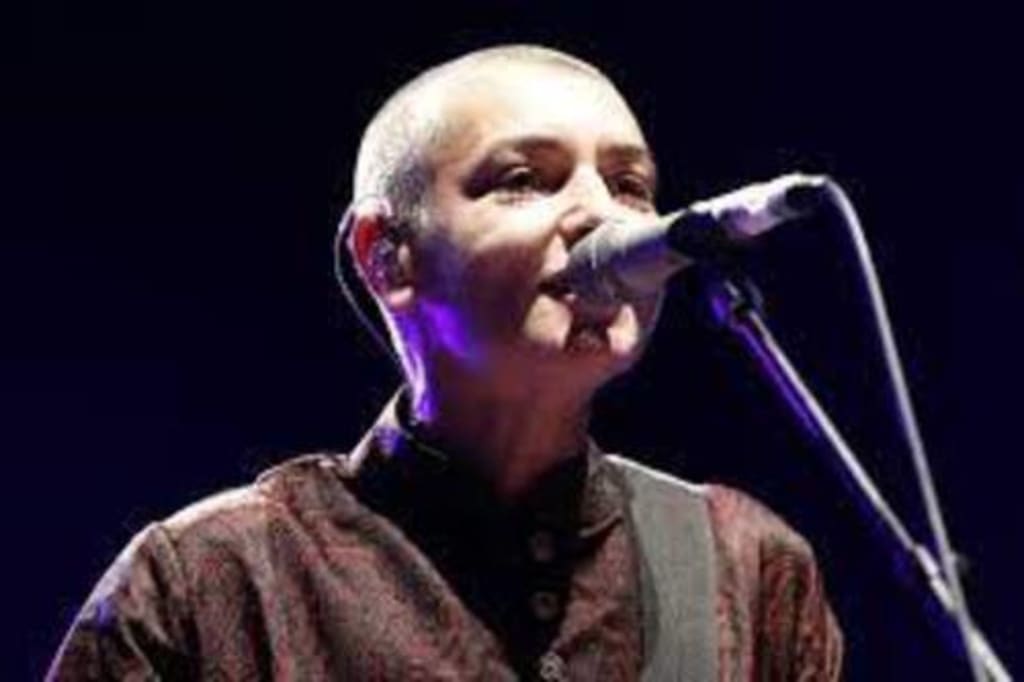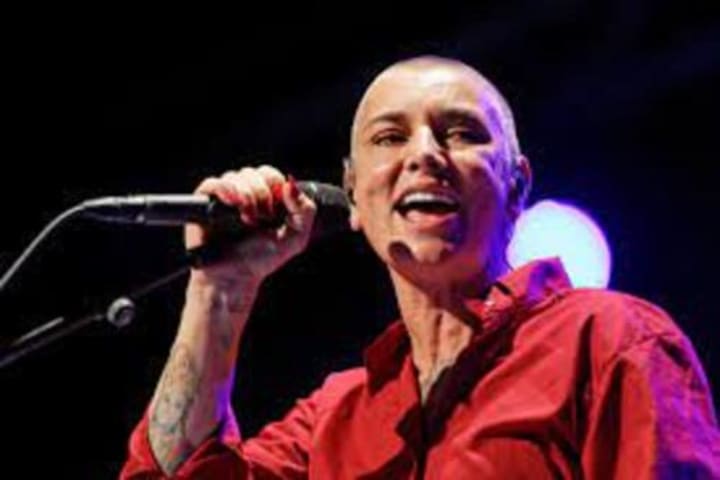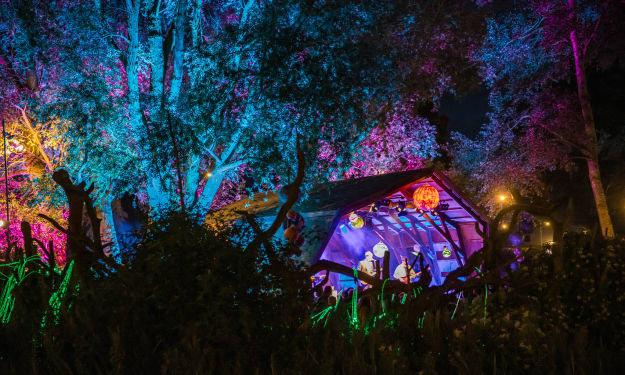The Controversial Life of Sinead O Connor
Sinead O Connor

Shuhada' Sadaqat, known by her birth name Sinéad Marie Bernadette O'Connor, born on 8 December 1966, was a notable figure from Ireland. She made her mark as a singer, songwriter, and advocate for political causes. Her debut album, titled "The Lion and the Cobra," emerged in 1987, achieving recognition on a global scale. The year 1990 saw the release of her most successful work, "I Do Not Want What I Haven't Got," which garnered immense popularity, selling over seven million copies worldwide. The album's lead single, "Nothing Compares 2 U," garnered significant acclaim, earning the distinction of being the top world single at the Billboard Music Awards.
Throughout her career, O'Connor achieved chart success with albums like "Am I Not Your Girl?" (1992), and "Universal Mother" (1994), both receiving gold certifications in the UK. "Faith and Courage" (2000) secured a gold certification in Australia, while "Throw Down Your Arms" (2005) achieved gold status in Ireland. Her artistic journey also encompassed contributing to film soundtracks, collaborating with numerous fellow artists, and participating in charitable fundraising concerts. Her memoir "Rememberings," released in 2021, enjoyed bestseller status.
Beyond her musical prowess, O'Connor consistently drew attention to critical societal issues, including child abuse, human rights, racism, institutionalized religion, and women's rights. One of her most iconic moments involved tearing a photograph of Pope John Paul II during a Saturday Night Live performance in 1992, symbolizing her protest against the Catholic Church's abuse scandals, a gesture that sparked considerable controversy. Her music and public engagements provided a platform for her to express her spiritual journey, activism, socio-political stances, as well as her personal struggles with trauma and mental health challenges.
Notably, in 2017, she adopted the name Magda Davitt, and later, in 2018, following her conversion to Islam, she took on the name Shuhada' Sadaqat. However, she continued her musical endeavors under her original birth name, Sinéad O'Connor.
O'Connor's early life was marked by her birth at the Cascia House Nursing Home in Dublin on 8 December 1966. She was named Sinéad in honor of Sinéad de Valera, the mother of the overseeing doctor, Éamon de Valera, Jnr., and also Bernadette, after Saint Bernadette of Lourdes. She grew up as the third of five siblings, among them the well-known novelist Joseph O'Connor. Her parents were John Oliver "Seán" O'Connor, who transitioned from a structural engineer to a barrister and chaired the Divorce Action Group, and Johanna Marie O'Grady. Her education took her to Dominican College Sion Hill in Blackrock, County Dublin, as well as other institutions.
O'Connor recounted in her memoir, "Rememberings," that she suffered abuse from her mother, who even taught her to steal from church collections and charity containers. At age 13 in 1979, she moved to live with her father after he returned from the United States. However, her life took a turn when, at 15, due to incidents of shoplifting and truancy, she was placed in a Magdalene asylum called Grianán Training Centre in Drumcondra. Operated by the Order of Our Lady of Charity, the institution imposed strict rules and conformity, though it also provided her space to develop her artistic talents. In her memoir, she detailed the harsh conditions she endured, including isolation and fear.
O'Connor's later years were also marked by public disclosures of the abuse she faced during her childhood. In 1993, she wrote a letter in The Irish Times discussing her painful upbringing and calling for understanding and compassion. Her mother's passing in a car accident in 1985, when O'Connor was 18, added another layer of complexity to her history. Despite family turmoil and personal struggles, O'Connor left an indelible mark on the world, both as an artist and an advocate for important social causes.

Career
1980s
In 1987, Shuhada' Sadaqat, known then as Sinéad Marie Bernadette O'Connor, was on the radar of the music scene. During her time at the Grianán center, she had a chance encounter with Paul Byrne's sister, the drummer for the band In Tua Nua. Impressed by her rendition of "Evergreen" by Barbra Streisand, they collaborated on a song named "Take My Hand." However, at 15 years old, the band deemed her too young to join their ranks. Through an advertisement in Hot Press magazine in 1984, she connected with Colm Farrelly. This marked the formation of the band Ton Ton Macoute, with O'Connor as the lead singer. They shifted to Waterford briefly, where she attended Newtown School, but she eventually left school to follow the band to Dublin. Their performances garnered positive feedback, and O'Connor's powerful voice and stage presence became their standout features.
O'Connor's involvement with Ton Ton Macoute introduced her to the music industry, and she was signed by Ensign Records. With the support of Fachtna Ó Ceallaigh, an experienced manager known for his association with U2's Mother Records, O'Connor embarked on her initial major project. She lent her vocals to the track "Heroine," co-written with U2's guitarist the Edge, for the soundtrack of the film Captive. O'Connor and Ó Ceallaigh both expressed outspoken views on music and politics. Her association with Ó Ceallaigh led her to defend the Provisional IRA and criticize U2's music as "bombastic." She later withdrew her comments regarding the IRA, acknowledging her limited understanding of Northern Ireland's complex situation at the time.
Her debut album "The Lion and the Cobra" was released in 1987 under Chrysalis Records, gaining considerable attention and achieving gold record status. The album's standout single, "Mandinka," became a hit on college radio in the United States. Her distinctive shaved head, intense expressions, and unique attire contributed to her distinctive image. The album's success earned her a Grammy nomination for Best Female Rock Vocal Performance. O'Connor made a memorable appearance on Late Night with David Letterman in 1988, where she performed "Mandinka." Additionally, her rendition of "Nothing Compares 2 U," a song written by Prince, became a monumental hit.
In the following years, O'Connor continued to make her mark in the music world. She collaborated with artists like Peter Gabriel and contributed to soundtracks, showcasing her versatility. Her second album, "I Do Not Want What I Haven't Got," released in 1990, garnered widespread attention and positive reviews. Notable tracks like "Nothing Compares 2 U" and "The Emperor's New Clothes" gained significant recognition. O'Connor's appearance at the 1992 MTV Video Music Awards with her head painted with Public Enemy's logo was an iconic moment, symbolizing her protest against the lack of acknowledgment for rap music. Her activism extended beyond music, as exemplified by her memorable appearance on Saturday Night Live in 1992 when she tore up a picture of Pope John Paul II, highlighting the issue of child abuse in the Catholic Church.
1990s
As the 1990s progressed, O'Connor's impact continued to grow. Her album "Universal Mother" in 1994, marked by tracks like "Fire on Babylon" and "Famine," achieved acclaim and even earned Grammy nominations for its music videos. Despite her success, O'Connor's outspoken nature often drew controversy, including her refusal to perform if the U.S. national anthem was played before her concerts.
Throughout the decade, she ventured into diverse projects, from contributing to tribute albums to working on various collaborations. She took on unique challenges like interpreting Irish folk songs and recording reggae music. Notably, in 1997, she played the role of the Virgin Mary in Neil Jordan's film "The Butcher Boy." Her work continued to be recognized through awards and nominations, solidifying her status as an influential artist.

2000s
The new millennium saw O'Connor's artistic evolution persist. Her album "Faith and Courage" (2000) featured tracks like "No Man's Woman" and showcased collaborations with artists like Wyclef Jean and Dave Stewart. In 2002, her album "Sean-Nós Nua" represented a departure as she revitalized traditional Irish folk songs with her unique touch.
O'Connor's musical endeavors remained diverse, ranging from guest vocals on albums to her 2005 reggae release "Throw Down Your Arms." She displayed her prowess in live performances, as demonstrated in her 2006 show at The Sugar Club in Dublin, which was released as a deluxe CD/DVD package.
Her 2007 album "Theology" marked a spiritual exploration, featuring covered and original Rastafari songs. O'Connor's ability to adapt and experiment allowed her to create music across genres while maintaining her artistic integrity.
2010s and Beyond
In 2010, O'Connor collaborated with Mary J. Blige on the song "This Is To Mother You," with proceeds benefiting Girls Educational and Mentoring Services (GEMS). She continued to engage in various projects, from recording soundtracks to creating original material. Her album "I'm Not Bossy, I'm the Boss" (2014) and subsequent works demonstrated her resilience and creativity.
O'Connor's journey was punctuated by personal challenges, including health struggles and emotional setbacks. Her contributions extended beyond music, as she became a voice for important social causes. The release of her memoir "Rememberings" in 2021 provided insight into her life and experiences, earning praise from critics.
Despite personal trials, O'Connor remained dedicated to her craft. Her musical legacy, activism, and willingness to confront important issues solidified her position as an enduring and influential figure in the world of music and beyond.
On July 26, 2023, Sinéad O'Connor was discovered unresponsive at her residence in Herne Hill, South London, and was confirmed deceased at the age of 56. The exact cause of her death was not disclosed. The following day, the Metropolitan Police stated that her passing was not being treated as suspicious. As of July 28, the coroner in London indicated that the specific date of her death remained uncertain. She was laid to rest on August 8 at Dean's Grange Cemetery, with her date of death officially recognized as July 26.
A private funeral took place on August 8 in Bray, County Wicklow. The event was attended by the President of Ireland, Michael D Higgins. O'Connor's family extended an invitation to the public to pay their respects along the seafront route the funeral procession followed. Thousands of people attended, holding signs and tributes to honor her memory.
In the wake of her passing, various individuals paid their respects and offered tributes. American singer-songwriter Phoebe Bridgers penned a tribute in Rolling Stone, commending O'Connor's integrity. Numerous celebrities, including Janelle Monáe, Patton Oswalt, Jamie Lee Curtis, Bear McCreary, Public Enemy, and Toni Collette, posted tributes on social media. Conversely, English singer Morrissey criticized the response from executives and celebrities, suggesting that they only praised her after her passing, having failed to support her during her lifetime.
O'Connor's personal life was marked by significant events. Her first son, Jake, was born on June 16, 1987, with music producer John Reynolds as the father. Reynolds and O'Connor married in March 1989 but eventually decided to divorce in November 1991 after a period of separation. O'Connor had an abortion in the same year and later wrote a song, "My Special Child," about the experience. In September 1995, she announced her pregnancy with the child of her friend, Irish columnist John Waters. Their daughter, Brigidine Roisin Waters (Roisin), was born in March 1996, leading to a custody battle that concluded in 1999, allowing Roisin to live in Dublin with Waters.
O'Connor's relationships included marriages to John Reynolds, British journalist Nick Sommerlad, Irish musician Dónal Lunny, collaborator Steve Cooney, and Irish therapist Barry Herridge. Her personal struggles were profound, including her battles with mental health disorders like bipolar disorder, complex post-traumatic stress disorder, and borderline personality disorder. She underwent a hysterectomy due to gynaecological problems and faced challenges related to surgical menopause. Additionally, she sought rehabilitation to overcome her addiction to cannabis. In 2017, O'Connor shared her feelings of isolation and struggles with suicidal thoughts in a video posted on Facebook.
Her spiritual journey was equally notable. O'Connor was ordained by Bishop Michael Cox of an Independent Catholic church in contradiction with Catholic Church doctrine. She expressed her Christian beliefs, emphasizing core concepts about the Trinity and Jesus Christ. Later, she converted to Islam in 2018, changing her name to Shuhada' Davitt and later to Sadaqat. Her conversion attracted both support and controversy, including remarks critical of non-Muslims that she later retracted and apologized for.
Get Sinead O Connors Remembering Memoirs Book Here





Comments
There are no comments for this story
Be the first to respond and start the conversation.